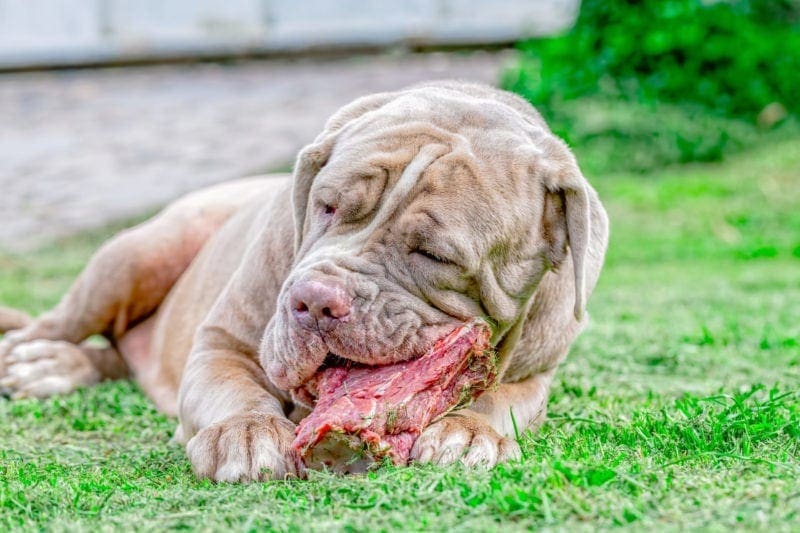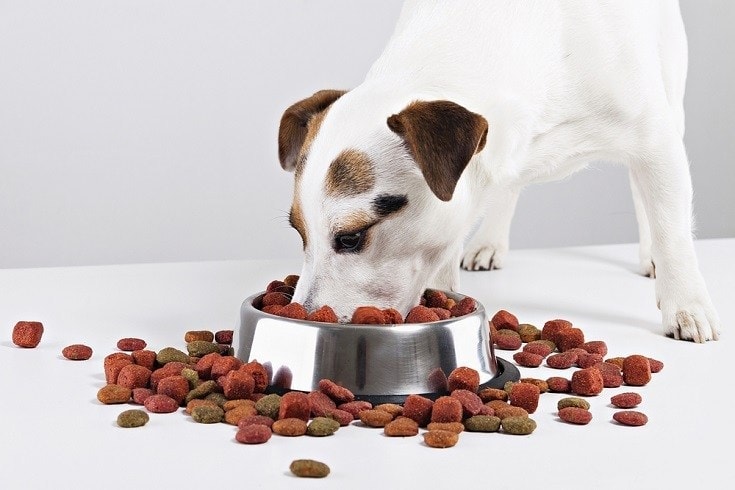Can Dogs Eat Couscous? Vet-Approved Facts & FAQ
Updated on
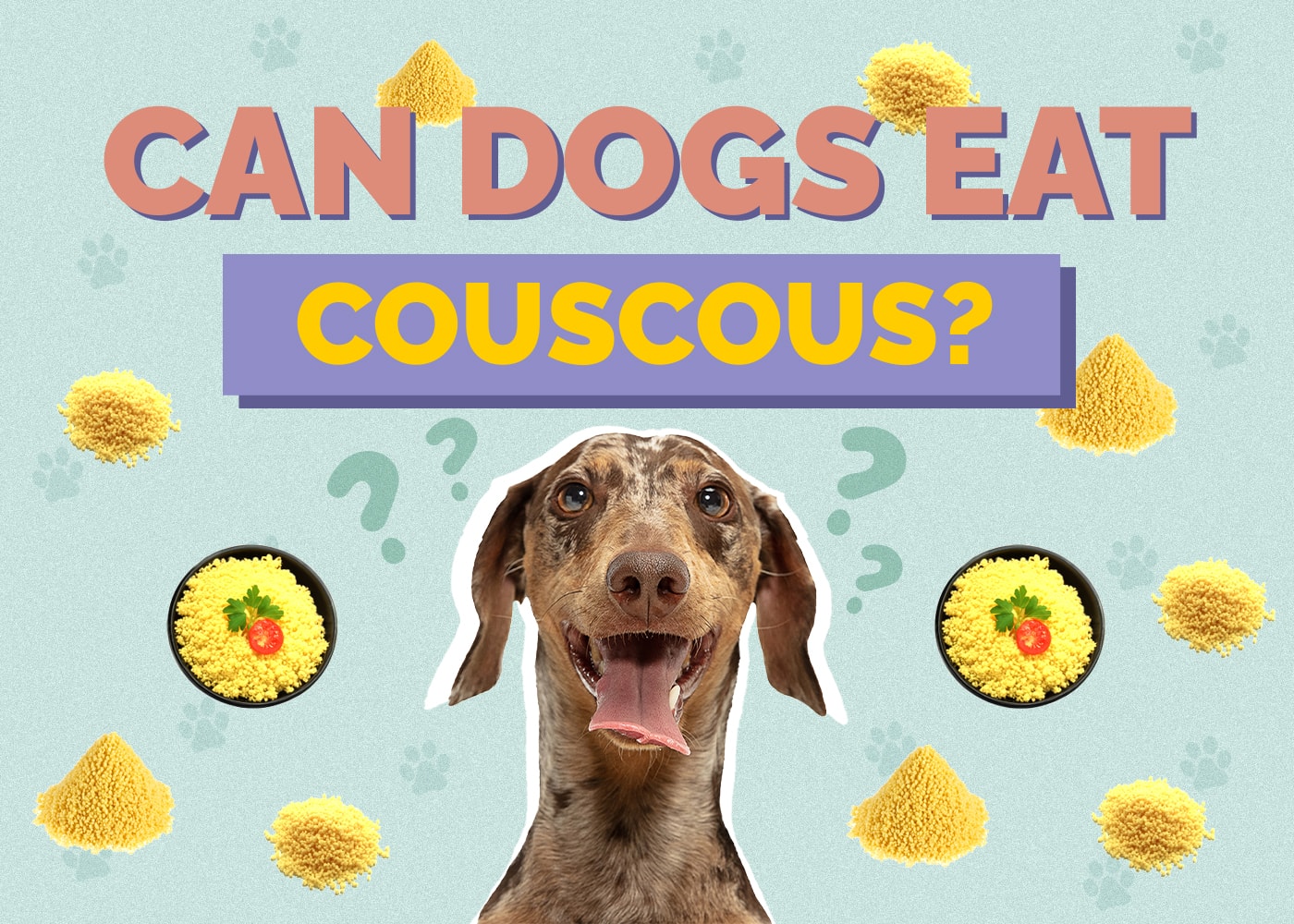
Click to Skip Ahead
Couscous is quick and easy to prepare and can be enjoyed with many other ingredients. Often when dog owners prepare a dish with rice, the leftovers are a great addition to their dog’s meal, but what about couscous? Yes, your dog can enjoy a bit of couscous if it is plain and doesn’t include harmful spices or veggies such as onion or garlic. Couscous can be a healthy addition to your dog’s meal, and in this article, we’ll guide you on how to safely feed it to your companion.
What Is Couscous?
Whole grain couscous, a staple in North Africa and gaining popularity in Western diets, is made from durum wheat or barley. It is considered a healthy pasta and a great alternative to rice and other grains for people.

Can Dogs Eat Couscous?
Dogs can eat couscous, but only in moderation and with some consideration. They can enjoy couscous in their diets as long as it is plain and doesn’t include harmful ingredients.
Couscous is not technically a grain but rather a type of tiny pasta made from wheat, which means that it contains gluten. Dogs can be allergic to gluten, although the majority of food allergies in dogs are caused by meat based proteins.
Plain couscous provides some health benefits to your dog’s diet, such as protein, fiber, selenium, and vitamin B6.
Health Benefits of Couscous
Couscous is a good source of carbohydrates that can provide energy for your dog. It is high in fiber, which is great for digestive health, and low in fat. It contains protein, vitamins, and minerals that can support your dog’s overall health. It also contains selenium which is a great antioxidant and has a role in thyroid metabolism and synthesis of DNA.
Downsides of Couscous
While couscous can provide various health benefits, there are some downsides to it. First, couscous is not suitable for dogs with a sensitivity or allergy to gluten. It also expands when it’s wet, so it is easy to misjudge portions and feed your dog too much, which can lead to discomfort.
Feeding too many carbohydrates such as couscous regularly can lead to weight gain and the associated negative health effects.
Couscous should also be prepared at home and remain plain and unseasoned. Ready-made couscous may contain harmful ingredients and spices such as garlic or onion, and couscous in a box may be pre-seasoned. Always be sure to check the ingredient labels when purchasing ready-made or packaged couscous.
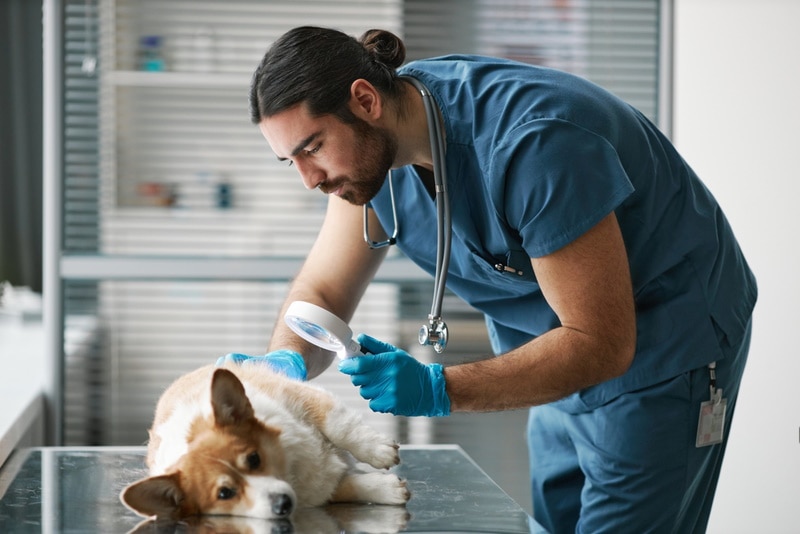
How to Feed Your Dog Couscous
The best way to feed your dog couscous is to cook it and keep it as plain as possible. It is also best to feed your dog organic couscous if you can do so. It can be boxed, but ensure that there are no additives.
You should introduce couscous to your dog gradually by starting with small amounts and increasing them slowly over time. Monitor your dog each time for signs of stomach upset.
How much couscous to feed depends on whether you are feeding it as an occasional treat alongside a high quality dog food, or as part of a homemade diet. Any treats/additions shouldn’t account for more than 10% of a dog’s overall diet. If home cooking your dog’s diet on a regular basis, then it is important to consult with a veterinary nutritionist to formulate the recipe. This will ensure your dog is getting all the nutrients in the right amounts to thrive.
In general it is a good idea to consult your vet before adding couscous to your dog’s diet. You can also add proteins like chicken and beef and healthy and safe vegetables such as carrots, broccoli, and sweet potato.
FAQ
Below, we’ll answer some of the most common questions about serving couscous to your pup.
Can Dogs Eat Uncooked Couscous?
Couscous can be eaten either cooked or raw, even though most people associate it with cooked dishes. You can also give your dog uncooked couscous. However, there are a few considerations to make before serving uncooked couscous and we would generally recommend cooking it before feeding. Uncooked couscous should not be seasoned and must be served plain.
If you do decide to feed it to your dog uncooked, it’s important to note that uncooked couscous expands when in contact with moisture, so you need to be very cautious with your portions. If you serve your dog too much uncooked couscous, it can swell and cause gastrointestinal discomfort and possible blockages.
Can I Give My Dog Couscous Instead of Rice?
Yes! Couscous is a healthy alternative to rice. It is a healthy option for dogs. It is also likely that your dog will enjoy the taste and texture, and it can be a great way to add some variety to their diet.
However, as we mentioned before, it will not be suitable for dogs with a gluten allergy. It is always best to talk to your vet when changing or adding to your dog’s diet.
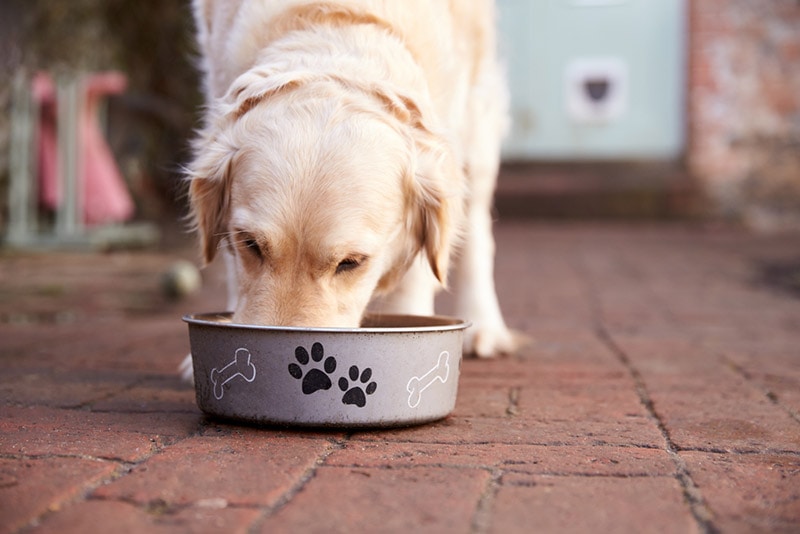
Conclusion
Dogs can enjoy couscous in their diet as long as it is plain and your dog doesn’t have a gluten allergy or sensitivity. Couscous should also only be given in moderation. It can be a healthy alternative to rice and provide many health benefits with nutrients such as selenium, protein, and fiber, but owners need to be cautious with the portion size. If your dog enjoys the taste, you can make a tasty dish with additional meat, vegetables, and bone broth for a super healthy dinner! As with all new foods, you should introduce couscous slowly and always consult with your vet before offering it to your pup.
Featured Image Credit: Bru-nO, Pixabay



